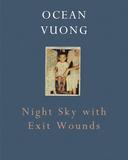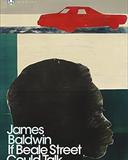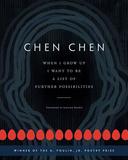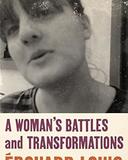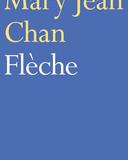Interview with poet Mukahang Limbu
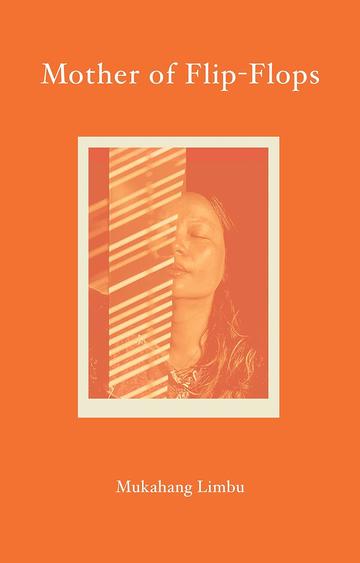
Mukahang Limbu is a Nepalese writer based in Oxford. A 3-time Foyle Young Poet, and winner of the Out-Spoken prize, he has been longlisted in the National Poetry competition, as well as the Forward Prizes. His poems has been published in England: Poems from a School (Picador, 2018), Poetry London, The Sunday Times. In June 2023, his debut pamphlet Mother of Flip-Flops (Out-Spoken Press, 2022) was published, which was chosen as the Poetry Book Society’s Pamphlet Choice, and he is a recipient of an Eric Gregory Award.
1. Has the contribution to this anthology prompted you to reflect on being a queer writer/poet in new ways?
The conversation with Marylyn, who I collaborated with for this anthology allowed me to understand how lucky I am to be a queer writer where I am. Although there are still ways to go, it puts it into perspective that I can organise a queer poetry night, or event without having to battle bureaucratic regulation. This is a liberty that needs to be cherished and protected. This feeds into my writing—I am truly fortunate that I am able to just write. It was an interesting experience, expressing ideas in an epistolary form—this really got me started on finding my own way, my own individual voice in prose.
2. What are your discoveries in this process of exchanging ideas with another poet?
That there are more interactive and experimental methods for exchanging ideas—our letters were not just letters but at moments political essays, lyrical prose, at times prose-poetry, and there is such fun in that. There just is so much to learn from, with somebody who is as brilliant as Marylyn but who also has quite a different experience of being queer, of writing, and approaches to poetry. We have decided to consume and read various things that interestingly have a roundabout way of having dialogue with another. This was really fun. This was queer joy.
And in the process of exchanging ideas, each sentence, especially Marylyn's who is so brilliant and so insightful, is saturated with so many ideas, and it is impossible to service all those ideas. The impossibility actually is so poetic, it both wants to want more, but is also a relief and freeing. There are so many ways a response can go, and this experience highlighted the unlimited potential of a response.
3. Do you remember how it was to begin to self-identify as a queer poet? Can you tell us more about it and how it has changed you/your writing journey?
Poems about being queer came later than being Nepali, because I had been hiding it—which family member was going to read about it, which member in the community could possibly tell my mum, would my mum find out? At the same time poetry was also an escape, a room where I could talk about being gay, having crushes, kissing boys, the boys I wanted to kiss etc. I'm sure a lot of poets, especially BIPOC poets, might relate to it. But over the years I think I am more brave, I can say the embarrassing things in my poetry and put it out there in the world and not care. This was definitely helped by coming out, and my mother's acceptance.
Being queer used to be everything in my poetry; I think when I first started becoming more comfortable about queer experiences, which was augmented by Ocean Vuong's debut collection, being queer made up the bone and flesh, the DNA of my poems. But now I've learned to create space for all the different facets that are not so separate; my mother, my father, being a migrant, boyhood, growing up, superstitions, softbois, and being gay can all fit in one poem, but of course I have to strike a balance.
4. What are your favourite books (poetry/fiction/non-fiction) written by queer writers?
Ocean Vuong—Night Sky with Exit Wounds (great place to start if you're new to poetry),
James Baldwin—If Beale Street Could Talk (prose so beautiful it makes you believe in love).
Chen Chen—When I Grow Up I Want to Be a List of Further Possibilities
Édouard Louis—A Woman's Battles and Transformations
Mary Jean Chan—Flèche
Other queer writers that I love are Danez Smith, Lorca, Frank O'Hara.
5. To you personally, what is/are the most difficult emotion(s) to write about, and why?
I think writing about things I fear is difficult, because it's just really scary. But only initially, when I'm thinking about writing it, but once I enter a poem I know I can try and find a way through it so I find it stimulating and fun. For me, it really depends on day to day; some days it is light funny things that come out easily, but other days it is really difficult to write about what I intend to write about, which is really frustrating. I think I've come to a point where the most embarrassing feelings and moments tend to make the best poems, or have this energy that makes me want to write it out. So rather than focusing on which emotion or whatever is difficult to write about, I think the most difficult thing is the act of writing itself. Having to set aside time, to will and motivate myself to write, and be disciplined enough not to write through the night because it ruins my sleep pattern, is the most difficult thing.
Read Mukahang's poem Poetry is Useless


